




VOX CLAMANTIS IN DESERTO: ROBERT S. KEEBLER, THE QUIET CRUSADER
The Sixth Circuit’s Second Amendment Test after Williams and Bruen In Loving Memory of Judge Donna M. Fields
Are you feeling overwhelmed by the demands of your law practice?
Rest assured! At BankTennessee, we understand the challenges you face and are here to make your life easier with money-saving accounts plus online and mobile banking options tailored to your unique needs.
Discover why BankTennessee is the choice for many legal professionals!
Talk to us today.
With you, the best is yet to come.



6 Leave Room for all Kinds of Butterflies BY JUDGE VALERIE L. SMITH
8 Vox Clamantis in Deserto: Robert S. Keebler, The Quiet Crusader BY JUDGE ROBERT A. LANIER
22 Criminal Court Division 4: A Legacy of Justice BY GERALD S. GREEN
24 The Sixth Circuit’s Second Amendment Test after Williams and Bruen
26 In Loving Memory of Judge Donna M. Fields BY TERRE FRATESI
27 Breaking the Blues of Uncertainty BY JUDGE STEVE HORNSBY
28 Reimaging the Immigration Debate: Learning and Listening as Prerequisites for Speaking BY BRYCE ASHBY
President'sColumn BY LAURAN STIMAC
CLC Corner: There and back again: My story with the Community Legal Center BY COLTON BANE
WTLS Expands to Memphis: A New Chapter of Justice and Support BY VANESSA BULLOCK
Shelby County Criminal Court Report
Bar Scene
A Moment with MALS: Spotlight on Fair Housing Month People in the News

Calkins,

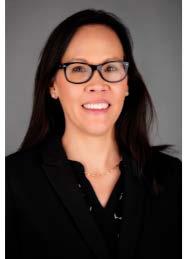

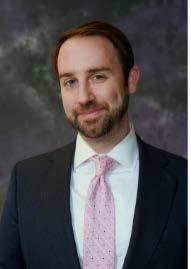
BY LAURAN STIMAC, MBA 2025 PRESIDENT








t the Annual Meeting back in December, I asked you to join me in taking a look back at how our legal careers were shaped—and by whom. I hope that you have all had the good fortune to learn from a mentor at some point in your legal career who shared advice and insight with you, encouraged you as you learned the law and how to practice it, and challenged you as you developed your own way and style. I encourage you to reflect on who those people are for you, how they influenced the path you have taken, and how you can lead others along that path today.
As we focus the 2025 MBA year on mentoring, we will celebrate those who have mentored us and also return the favor by finding innovative and meaningful ways to mentor new lawyers in our community. As a means of advancing that latter goal, I am thrilled to announce the return of the MBA Leadership Forum! As an alumna of the TBALL program, I have experienced firsthand the benefits that these kinds of programs can offer young lawyers, and my conversations with MBA Leadership Forum alumni have confirmed that we are bringing back a beloved program for our members’ benefit.
In the extremely capable hands of co-chairs Lucie Brackin and Terrence Reed, the MBA Leadership Forum will provide an opportunity for a select group of young lawyers to learn about themselves, their goals, the means available to achieve them, and ways they can use their strengths in service to their communities. We look forward to announcing the 2025 class in May. We will need your help to make this program a success, as each session will include guest speakers and facilitators, so if you see that Lucie or Terrence is calling, please answer
and say yes! One of our goals will be to ensure that both our mentors and the young lawyers in the Class of 2025 gain fresh perspectives and new insights from their participation in the program.
To make this program a success, we will need your help. If you have ideas for their sessions or want to host or sponsor them, we would love to hear from you. If you are an alum of the program and want to be involved, we will be happy to find a role for you. Thank you for







BY JUDGE VALERIE L. SMITH
Ihave never met a soul who does not like butterflies. The idea of chasing butterflies conjures images of smiling children, flowers, and happiness. I love them. In recent years, Dave and I have cultivated native plants in our yard to draw in pollinators including a variety of butterflies. It makes my day to see a swallowtail enjoying the phlox that I have planted and divided for years. Butterflies in the garden make me smile. Smiling is good for us all.

I love to arrange flowers. Occasionally, I have done so for legal events and often post pictures on social media of “things my mom taught me.” My mother is a gifted designer. I aspire. Mom taught me years ago that structure is key, but not to a fault. Between the blooms one must leave room for the butterflies. I often think of that in everyday life. Don’t get me wrong, I love to control as much as possible. But if you are too focused on structure, you may miss the joy of a beautiful butterfly. If you have read this far, you may be reaching for your phone to contact Dave and tell him that I have lost it. Or you may be thinking “Valerie – what does this have to do with the practice of law?!?” But I challenge you to

think of the first time you appeared in court, attended a difficult deposition, or handled a client meeting solo. That queasy feeling that we all know— the butterflies.
Butterflies make us better lawyers. Hiding behind screens does not cultivate butterflies. I would argue that screens are slowly killing them.
Now don’t get me wrong, I do not enjoy being nauseous any more than the next person. Recently, I had occasion to speak publicly and was a bit out of my comfort zone. I had a crazy case of the butterflies, but I got through it and am better for it. I did a bit of reconnaissance and identified their cause. Being downright uncomfortable and second guessing yourself is not enjoyable, but it creates personal growth. Think of it as your own natural pollination process. I grew from those butterflies of mine.
Zoom, email, and texting provide buffers that weigh down the butterflies. Staying safely in our comfortable spaces, saying things that would never be said in person, and simply communicating less does not contribute to personal growth. Behind screens, we often ignore how tone may be perceived. We may even hurt others in ways we do not intend. To keep all of the butterflies alive, we must communicate with our actual voices and in person.
I am perfectly fine being teased about sharing this. I even welcome it . . . especially if you tell me how silly this article is face to face. That would really make me smile.
So I hope when you see butterflies this spring, or experience them the next time you learn and grow, you will talk to someone about them. Try doing that in person or at least over the phone. Technology is great and has its place, but so is the joy and work done by butterflies — those in the garden and inside of us all. Leave room for them to fly.


Judge Valerie Smith was confirmed to the Court of Appeals, Western Division on March 24, 2025. She previously presided in Division III of the Circuit Court for the Thirtieth Judicial District.

Judge Smith’s love for gardening and growing things began at an early age. She worked in the gardens of her parents and grandparents as well as on the family farm. She adores heirloom plants and regularly adds to her collection of day lilies, iris, hosta, and hellebores. She is looking forward to the blooms of the spring and summer. She and her husband Dave work to cultivate plants that draw bees, hummingbirds, and, most of all, butterflies.

BY JUDGE ROBERT A. LANIER
What sayest thou of thyself? He said, “I am the voice of one crying in the wilderness.” John 1:22-23
We have reached the 100th anniversary of one of the most famous cases in Tennessee and American history, and a Memphis lawyer played a prominent role: the Scopes trial.
In early 1925, state Representative George Washington Butler, 49, a farmer from Macon County, Tennessee, ascended Capitol Hill in Nashville to the neoclassical State Capitol. There, he joined his comrades in the Tennessee General Assembly (legislature to you) at its regular session. Butler had apparently been disturbed by an itinerant preacher’s sermon which mentioned a local young woman who had been corrupted by attending a university, where she had converted to believe in evolution. Now this evolution business had been going around quite a bit, agitating those who were offended by its contradiction of the Biblical teaching that man (and presumably woman) was created more or less instantaneously by God. William Jennings Bryan, the distinguished three-time Democratic candidate for President and Secretary of State under Woodrow Wilson, was one of the most prominent defenders of the Biblical version. He wrote a syndicated newspaper column defending the literal truth of everything in the Bible and spoke to audiences on the subject. He had recently spoken in Nashville, and his speech was printed and later placed on the desk of each state legislator.
Butler decided to introduce an act which stated in part:
. . . it shall be unlawful for any teacher in any of the Universities, Normals [i.e. teachers colleges] and all other public schools of the State which are supported in whole or in part by the public school funds of the State, to teach any theory that denies the story of the Divine Creation of man as taught in the Bible, and to teach instead that man has

with Bryan’s speech lying on their desks, approved it 24 to 7.2 Some of the legislators went on record explaining that their vote was based on their disbelief that man was descended from a monkey, a theory falsely ascribed to Evolution, but widespread nevertheless.
Governor Austin Peay, generally regarded then and later as a progressive reformer of state institutions, signed the bill on March 21, 1925. After noting that the state constitution mentioned God, he sent this astonishing message to the legislature:
descended from a lower order of animals . . . any teacher found guilty of the violation of this Act shall be guilty of a misdemeanor and upon conviction shall be fined not less than $100 [perhaps $1,500 in today’s money] nor more than $500 [$7,500?] for each offense.
Butler’s colleagues in the Assembly were either ignorant of, or indifferent to, the startling fact that the official state Biology textbook, required to be taught in all high schools, included the following:
We have now learned that animal forms may be arranged so as to begin with very simple onecelled forms and culminate with a group which contains man himself. This arrangement is called the evolutionary series. Evolution means change, and these groups are believed by scientists to represent stages of complexity of development of life on earth. Geology teaches that millions of years ago, life upon the earth was very simple, and that gradually more and more complex forms of life appeared . . . .1
State institutions were strangely silent about Butler’s bill. The University of Tennessee officials and faculty and the state Department of Education, apparently fearing the loss of expected appropriations, were silent. Leaders of the Tennessee Academy of Science were mum. Despite heckling from the galleries by some Vanderbilt University students, the House of Representatives, no doubt conscious of Bryan’s recent Nashville speech (and the possible anger of the simple folks at home), voted overwhelmingly to enact Butler’s bill, 71 to 5. The Senate,
1 Sprague de Camp, The Great Monkey Trial (Garden City: Doubleday & Co., 1968), pp. 11, 12.
After a careful examination I can find nothing of consequence in the books now being taught in our schools with which this bill will interfere in the slightest manner. Therefore it will not put our teachers in any jeopardy. Probably the law will never be applied. It may not be sufficiently definite to admit of any specific application or enforcement. Nobody believes that it is going to be an active statute.3
Active or not, the statute got national attention, especially from the American Civil Liberties Union (ACLU), and coincidentally, from some civic boosters in the sleepy little East Tennessee town of Dayton, in Rhea County. Dayton was moribund due to depression in its mining industry. George Rappelyea, a 31 year-old Yankee mining engineer there, noted that Chattanooga was talking about hosting a test trial of the new law. He thought it would be just the thing to put Dayton on the map if he could arrange to beat Chattanooga to the punch with a trial in Dayton first. In early May, he conferred with the local druggist, school board superintendent Walter White, lawyer Sue K. Hicks (the “Boy Named Sue” in the Johnny Cash song), local high school coach and biology teacher John Scopes, 24, and others. He talked them into a collusive prosecution against Scopes and persuaded the local Circuit Judge to set up a special early term of court in July for the trial. Scopes opined, logically, that anybody who taught biology from the state textbook, as he did, must have violated the law. When word of the prosecution got out, Bryan publicly offered to appear for the prosecution, and
2 Ray Ginger, Six Days or Forever (Boston: Beacon Hill Press, 1957) pp. 5, 6.
3 Ibid., p. 7.

Hicks, as acting county attorney, invited him to do so. Lead counsel for the defense was the brilliant but unkempt John Randolph Neal, Ph.D., of Knoxville and Rhea County. Neal (a cousin of my mother’s) had been the popular dean of the University of Tennessee Law School until 1923. When he defended a professor who opposed fundamentalism, he and others were fired. Neal promptly formed his own law school, taking most of the law students with him.
After some discussion over strategy and personalities, the ACLU agreed to join the Scopes defense. Clarence Darrow, famous defender of apparently lost causes and himself an agnostic, offered his services to Neal and became the most prominent of Scopes’ defense counsel.
The following June, the Tennessee Bar Association, a voluntary organization of some 1600 white attorneys, gathered for its 44th annual meeting in Memphis at


the rambling Memphis Country Club on the outskirts of town. Lawyers from across the state attended the conference, which usually dealt with a minimum of parochial technical matters and a maximum of golf and back-slapping socializing. Memphis’s Commercial Appeal newspaper noted that judicial elections were upcoming. Unlike most counties, the recently formed Memphis & Shelby County Bar Association had just begun its 50year tradition of holding “bar primaries” to recommend judicial candidates.4 The newspaper’s Charles Gibson reported:
Oleaginous is easily the most felicitous word to describe this convention of lawyers. It was La Rouchefoucauld who said that all lawyers are divided into three classes---those who have been politicians, those who are politicians and those who hope to be politicians. All three classes are abundantly represented at the convention. Everybody is mighty glad to know everybody else. They look each other in the eye when they shake hands, then they slip off to the side and jot down the name, age, characteristic and voting precinct of their new acquaintance in the little campaign notebook.
Prominent Memphis attorney Lovick P. Miles was the TBA’s president in 1925 and presided at meetings. Darrow had made his way to Knoxville and was addressing Neal’s law school. At Neal’s suggestion, and apparently without Miles’s approval, the TBA secretary and others invited Darrow to speak to the convention. Miles hastily telegraphed Darrow and withdrew the invitation, explaining that his presence might be “misconstrued” and be a cause for “precipitating an acrimonious discussion.”5
4
The fat was in the fire, however, and a number of TBA delegates offered motions and resolutions on the now famous Scopes issue. On June 26, Governor Peay, who was at the Mayo Clinic for his health, wrote a scathing letter to Rhea County school board superintendent White, which he requested White to deliver to the Associated Press. This letter said that Tennessee had the right to say that the minds of her children shall not be destroyed by “teachers who poison their minds with stuff that no science has established and which belongs in no reputable text book.” He went on to write that
Tennessee needs no sympathy nor commiseration. Our state has taken a great and forward position which deserves and will certainly receive in time the admiration and appreciation of the Christian world. I have profound contempt for those who are throwing slurs at Tennessee for having this law. In my judgment any state had better dispense with its schools than with its Bibles. We are keeping both.6
Young Memphis Attorney Robert S. Keebler prepared a lengthy essay on the questions presented by the Butler Act and approached bar president Miles about reading it to the conference, estimating that it would take a half hour to do so. Apparently the discussion between the two was not detailed, as Miles understood that Keebler had assured him that the paper would be confined to the legal question of constitutionality and not religion, which was a forbidden topic under the association’s by-laws.7
On June 26, attorney and state senator Giles Evans of Fayetteville offered a resolution deploring the Scopes trial as “an advertising and publicity scheme” (which, of course, it largely was). This was tabled for the time being. A “splendid” luncheon was served by the Country Club staff while two ladies, Fay and Virginia Wagner, entertained with songs accompanied by their ukuleles. The balance of the day was consumed by a pedestrian speech by Dresden Congressman Finis Garret and routine business matters, followed by an evening banquet.
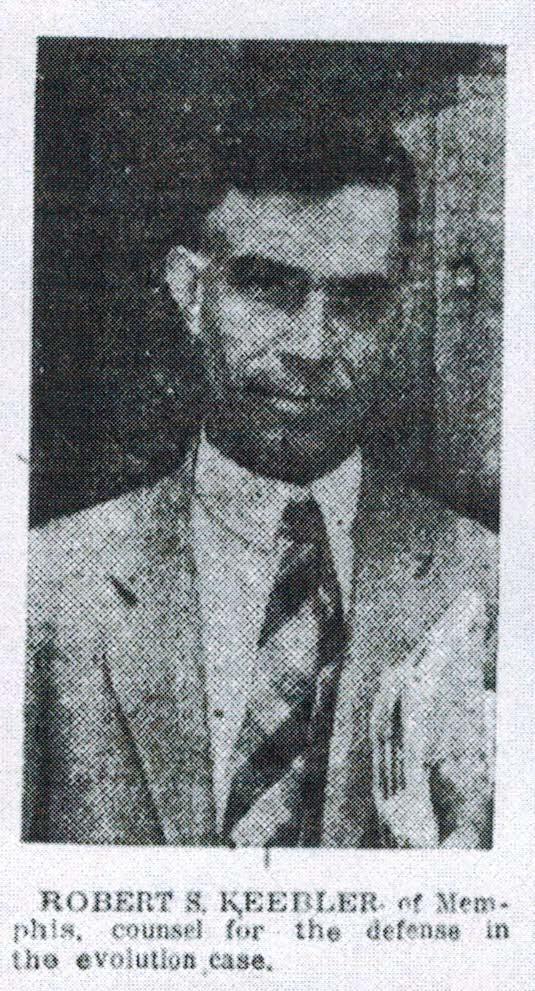
As the conference reconvened on June 27, Keebler was called upon to read his essay entitled “The Tennessee Evolution Case.” He read rapidly, but at the end of the allotted 30 minutes, cries from the audience were so great that he was allowed another 15 minutes to finish. He attacked the Butler Act as unconstitutional under the state constitution, which required that the legislature “cherish science,” and the federal Fourteenth Amendment, which he said protected speech and “freedom of the human intellect.” Keebler’s essay went into great detail, citing legal authorities, but also inevitably included attacks on the absurdity of fundamentalism as an attempt to reverse “natural law.” He cited as examples scriptural suggestion that the earth is flat and situated on an underlying sea.8 After the additional 15 minutes, Miles abruptly cut off Keebler’s talk in mid-sentence. The full text was furnished to the newspaper, however, and in an example of what we have lost by the death of newspapers, it was printed in full beside the news article the next day. Reporter Gibson had a field day with his complete but colorful description of events, which he sometimes referred to as “monkey business.” He reported the reaction to Keebler’s talk as follows:
To describe accurately the drama---or the comedy, if one chooses---of the scene which the Keebler address created, is not within the power of words, printed or spoken. The eye and ear alone could grasp it. Bedlam was only mild confusion compared with it.9
Venerable “Col.” Thomas B. Edgington,10 a practicing lawyer in Memphis since the Civil War, offered a resolution midway in Keebler’s presentation, demanding repeal of the evolution law. It was promptly ruled out of order. A dozen or so lawyers were on their feet, clamoring to hear more, but Miles was adamant. Prominent Memphis attorney H.D. Minor demanded to be permitted to reply to what he considered Keebler’s attack on the Tennessee General Assembly, but he was ruled out of order. At this point, near 1 o’clock, the stentorian voice of “Col.” T.K. Riddick, a stalwart supporter of boss E.H. Crump, inquired, “When do we eat?” The lawyers then filed into the dining room for an hour or so. The “older and cooler heads” of the association (Roane Waring, Sr., Elias Gates, and Miles) then hurriedly consulted the by-laws and concluded that their prohibition on discussing religion provided a way to quash Keebler’s effort. They circulated among the diners, recruiting supporters. At 2 p.m., the meeting reconvened and routine business was dealt with to the restless audience. Before Minor could be heard in regard to Keebler, Col. Edgington was allowed to read his repeal resolution until Gates interrupted with his point of order that the whole thing was a forbidden religious discussion. Edgington began to reply, digressing into a defense of Governor Peay’s attitude toward the act. Miles then himself digressed to defend his withdrawal of Darrow’s invitation to speak to the conference as based on the very point raised: a religious discussion which might cause disharmony. He added that he was very much chagrined and disappointed in Keebler’s paper, citing his belief that Keebler had assured him that the talk would not exceed 30 minutes and would be confined to the constitutionality question. Instead, in his view, it ridiculed both Christian and Jewish orthodoxy, and treated the legislature contemptuously. Miles then sustained the objection and ordered the speech expunged. An appeal from the ruling based on the desire of some lawyers to have the complete text was defeated 86-53, thus ending the discussion. Veteran Memphis lawyer R. Gratz Brown, with tongue in cheek no doubt, said that he was quitting the TBA because its action on the Butler Act effectively declared it unconstitutional: if indeed it was a religious question, the conference had no right to rule on it. He also criticized the treatment of Darrow’s invitation as a gratuitous
5 De Camp; op.cit., pp. 110,111.

6 The Commercial Appeal, June 27, 1925, p. 1.
7 The Commercial Appeal, June 28, 1925, p. 3.
8 Robert S. Keebler, The Tennessee Evolution Case (Privately printed, 1925), p.5.
9 The Commercial Appeal, June 28, 1925, p. 1.
10 Gibson noted with amusement the lax practice by the lawyers of addressing some of their colleagues as “Colonel” and “General.”

and signal discourtesy to a great lawyer and said that freedom of speech and thought had been suppressed by the “steamroller of the Fundamentalist caucus.” Reporter Gibson’s obvious amusement was apparently not shared by the editorial staff of the Memphis paper. An editorial in the next day’s issue, probably written by devout Catholic editor C.P.J. Mooney, was headlined, “We Cannot Get Along Without God.” Rappelyea was ridiculed as “a man whose name sounds like applejack” who “sought contact with the highbrows of the north and east.” Darrow was described as “a mighty sob sister before a jury.”
Although Keebler’s essay was officially expunged from the minutes of the TBA conference, the ACLU immediately arranged for the publication of it, and copies have been available ever since.
In the aftermath of Keebler’s appearance at the TBA convention, national attention focused on the Scopes trial, scheduled for July 10 at the brick courthouse in Dayton. Keebler, far from being an agnostic or atheist, was from a family of Methodists, had been a member of the Methodist Episcopal Church South for 25 years and




a Sunday school teacher at St. John’s Methodist Church in Memphis for some time. Now some of his close friends brought him word that his “modernist” views were becoming the subject of dissension and “a strong undertone of unfavorable comment against me” within the church, mainly by some women. He was not asked to resign but voluntarily withdrew as a Sunday School teacher and cancelled his engagement to address the Fellow Workers Bible class of the First Methodist Church “for the sake of harmony.” He told the Memphis Civitan Club that he hadn’t realized that he had been “living on the side of a volcano or that I was a religious heretic.” He said that the purpose of his TBA talk was to emphasize the necessity of getting back to the fundamentals of the American government and Christian religion. If the fundamentals were emphasized, he said, the details would take care of themselves. He added, “If I am a heretic, I want the leaders of my church to say so.”11
Following up on this idea, as he packed to join the Scopes defense team in Dayton, he wrote a letter to the Methodist Presiding Bishop of the Memphis Conference, with copies to the Presiding Elder and the pastor of St. John’s Church. He asserted that his position that the Genesis story of creation, if literally interpreted, is not accredited by science, while the theory of evolution is. As some of his fellow Methodists had let him know that the theory of evolution was “unChristian” and he a heretic, he demanded to be told: was a belief in evolution compatible with Methodism? Must an “orthodox” Methodist believe in the literal inerrancy of the entire Bible? What must a Methodist believe to be orthodox? No record of a reply




As is well known, the famous Scopes trial began in Dayton on July 10, with William Jennings Bryan dominating the prosecution presentation, along with Sue K. Hicks, District Attorney General A.T. Stewart, and Bryan’s son. The defense was dominated by the great Clarence Darrow, assisted by Arthur Garfield Hays and Dudley Field Malone, who were furnished gratis by the ACLU. It was not a real trial in the way with which most of us are familiar. There was no dispute that Scopes had taught evolution from the state textbook (although Scopes later had some doubt about it), and Darrow agreed that the jury could be instructed that Scopes was guilty, so the jury had nothing really to decide. The highlight of the trial, of course, was furnished by Darrow’s cross examination of Bryan on the validity of Biblical fundamentalism. Reporters and a radio audience (for the first time in history) were treated to the unique spectacle of the chief defense counsel (Bryan) volunteering to become a witness! In an anticlimax, Scopes was fined $100 by the judge. The Tennessee Bar Association, possibly oblivious to the irony, designated Keebler to thank the out-of-state lawyers on both sides! Much has been written about the case, but I suggest that the reader will find no better accounts than in the books The Great Monkey Trial by L. Sprague De Camp (1968), Six Days or Forever? by Ray Ginger (1957), and Center of the Storm by John T. Scopes and James Presley (1967).
The case was appealed by the defense to the Tennessee Supreme Court. Keebler, now welcomed by the ACLU as one of defense counsel, with Arthur Garfield Hays largely wrote the appellate brief. As a Tennessee lawyer, Keebler was preferred over the somewhat eccentric and academic Neal. He took a prominent part in the May 1926 oral arguments before the Court, defending the ACLU and stating that the Butler Act “did not serve the broad secular purpose of protecting American values, but merely promoted that peculiar dogmatism of the Christian Church known as fundamentalism.”12
In a decision noteworthy for its fatuity, the Court
held that the constitutional demand to cherish science was too vague to be enforced and that evolution could be taught so long as it didn’t get into that creation of man stuff. However, since only the jury, and not the judge, could fine over $50, there was reversible error. On the other hand, because Scopes didn’t work for the school anymore, the District Attorney General was pressured to dismiss “this bizarre case.” He did so.13
The Butler Act seems to have been largely ignored for the next 40 years, which is not to say what was actually taught in Tennessee schools. That is unknown to this author, who speculates that teachers tailored their instruction to their consciences and their perception of the likely response from their students. In any event, the law remained in the Tennessee law books until, in 1967, it was quietly repealed.14
Like Banquo’s ghost, however, the spirit of the law reappeared. In 2012, Tennessee legislators, largely the successors of the old Southern Democrats and Dixiecrats, newly self-christened as Republicans, enacted a law requiring teachers to permit criticism of the theory of evolution, no matter how accepted it may be by scientists. Apparently inspired by supporters of “creationism” (i.e. a theory of an intelligent Creator or “intelligent design”), the sponsors were doubtless aware of the Scopes case and the ridicule it brought on the state. In an attempt to avoid this, they ensured that the statute expressly “shall not be construed to promote any religious or nonreligious doctrine.” Unlike 1925, however, the legislation met with attacks not only by the local ACLU, but several Tennessee members of the National Academy of Sciences, faculty at Vanderbilt University, the American Association for the Advancement of Science, and other science education organizations. The Tennessee Education Association of teachers opposed the law because it considered it an unnecessary interference with teaching. More sophisticated than Governor Peay, Governor Bill Haslam allowed the bill to become law without either his approval or veto, claiming its lack of “clarity.” It was Haslam who earlier had cleverly vetoed a bill naming the Bible as the state book on the diplomatic ground that it would degrade the Holy Book.15 As this is written, there are no known court challenges to the 2012 law.
Keebler continued his civil liberties activism. In September 1925, while the Scopes case was on appeal, Keebler was the president of the Memphis Legal Aid Society, an apparent successor to the earlier Howard Association. The Society, with a tiny office in room 7 of the Shelby County courthouse, had been in existence for over a year and had aided about 250 clients. Its primary purpose was to render legal aid to indigent and “worthy” persons unable to employ a lawyer of their own. In the days before the federally funded poverty law offices opened in the 1970s, the Aid Society was all that was available other than volunteer attorneys. Funded by the “Community Fund,” an annual charity drive for worthy causes, it employed only one attorney, Fletcher G. Cohn, although it boasted a board of directors of some of the most prominent lawyers in Memphis.16 In May of 1932, John R. Neal arranged a conference in Knoxville of about 100 like-minded liberals to hear Arthur Garfield Hays and others urge formation of an ACLU chapter in Kentucky where a violent labor dispute had broken out between coal miners and the mine owners over a reduction of pay. Concerned because of communist involvement in the dispute, Neal assured that several of the speakers were “southern people and not New Yorkers who had come down to butt in.” Unsurprisingly, Keebler was in attendance, on his way to visit his mother in Bristol. “We are not all snake doctors from New York,” he said.17
In 1932 Malcolm Patterson of Memphis, who had been governor some 30 years earlier, ran again for the office against the now-entrenched E.H. Crump Shelby County political machine’s candidate. Keebler attacked Crump, then a Congressman, at a small Patterson rally at a private home. He joined Patterson in condemning the Crump machine’s practice of paying the poll taxes of African Americans and “herding” them to the polls, while smashing the cameras of those who tried to photograph the event and interfering with ballot counts. Although Crump denied knowledge of such behavior, he took credit for the growth and physical improvements of Memphis. Keebler charged him with lack of humility,
corrupt elections, and holding the entire city and county government “under his thumb.” Patterson lost. Perhaps discouraged about the future of Memphis under Crump’s “thumb,” Keebler welcomed the coming of Franklin Roosevelt’s New Deal in 1933 and moved to Washington, D.C. in 1935. He soon obtained appointment as an attorney for the Federal Power Commission. In that capacity, he handled many of the more important power cases, often crossing swords with private power interests in hearings and briefs. His record was so outstanding that the commissioners were said to favor him for appointment as their chief counsel in 1938. However, politics intervened, and a 29-yearold from St. Louis gained the patronage of Roosevelt’s favorite, Thomas Corcoran. Instead, the 49-year-old Keebler was appointed principal attorney in the Utilities Division of the Securities and Exchange Commission as a consolation. He remained in that position until his retirement.18
p. 217.

13 De Camp, op.cit., pp. 469-471.
14 The Wall Street Journal, April 8, 2012, p. 2.
15 Ibid
16 The Commercial Appeal, September 10, 1925, p. 11.
17 The Knoxville Journal, May 15, 1932, p. 6.
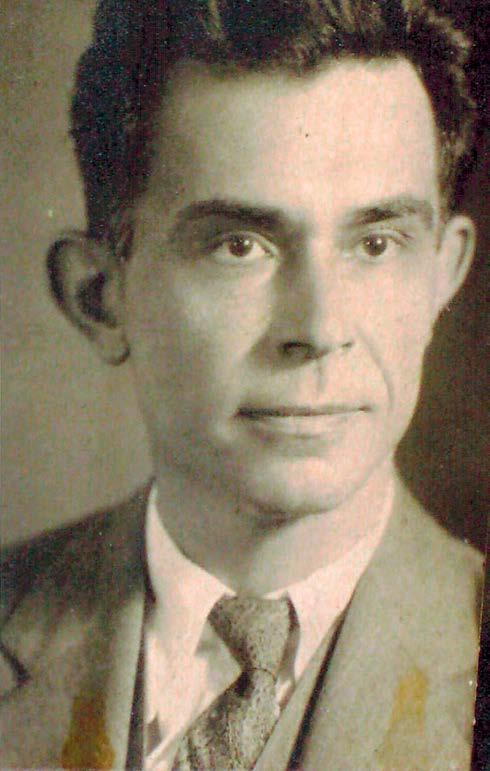
Who was Robert Samuel Keebler? He was born in the upper fringe of East Tennessee in the town of Bristol in 1889 to a locally prominent family, steeped in the traditions of the Methodist Church South. His father, A. C. Keebler, was the Bristol city attorney and was a very popular Methodist layman who taught Sunday school and a Bible class for women. A hall in the church was named for him and his wife.19 Young Robert seemed destined for a successful career. He graduated from Washington and Lee University with high honors in 1909 and turned down scholarships to Harvard and Yale because he wanted to teach. He accepted the chair of history at the newly opened Palmer College, a small coed Christian school in west Florida, not to be confused with later chiropractic schools with a similar name. Keebler was to teach Latin and Greek as well as history.20 He changed his mind and decided to attend Harvard. By 1912, as temporary secretary of Bristol’s Wilson Club, he was actively supporting Woodrow Wilson for

president. He was a speaker and delegated by the club to notify Wilson of their support and invitation to speak.21 Around 1916, he was in Memphis and joined “The Egyptians.” This club, formed in 1913, was limited to 33 self-described “men of recognized standing ability and influence in Memphis” and still exists, although no longer limited to men.22 In 1917, he was with the Memphis Union & Planters Bank Trust Department and was referred to as “a student of constitutional reform” by an Arkansas newspaper as he addressed the Helena Rotary Club.23
He served in the army in the First World War, although there is some question whether he went overseas. He returned to Memphis, but in August 1919, with $300 in the bank, he became interested in the great Burkburnett oil boom in north Texas. He became aware of the Seven States Oil Company of Memphis, which purported to own three producing wells at Burkburnett, as well as drilling sites elsewhere, and a 23-acre industrial site on Hollywood in Memphis for a proposed refinery. Leery of the reputation that over 99% of oil men were crooks, he investigated and invested $100 in the venture, even advising his father and a Memphis friend to do so, and moved to Fort Worth. Moreover, he became “Sales Agent” for three states, soliciting sales of shares at $15 each through a postal address in Bristol, where there was discussion of placing another distribution plant. In September 1920, test production began after a formal dedication presided over by new mayor Rowlett Paine. A rocky history followed, including mergers, bankruptcies, and closure of the refinery in April 1922 amid accusations of managerial irregularities. What became of Keebler’s participation in this venture was not found.24 What we do know is that Keebler returned to Memphis in 1920, renting an office but not yet practicing law. In 1920, he was a director of the newly revived local Howard Association, which hoped to monitor prison conditions, take an interest in prisoners, and even sometimes investigate their cases.25 The next year, he shared offices in the Goodwyn Institute Building with Charles N. Fox, age 44. Like Keebler, Fox was a unique
21 The Bristol [Tennessee] Herald Courier, July 3, 1912, p. 8.
22 The Egyptians 2020-2021 Yearbook pp. iv-viii.
23 The Arkansas Democrat, March 22, 1917, p. 1.
24 The Bristol [Tennessee] Herald Courier, December 24, 1919, p. 8; “The Saga of the Seven States Oil Refinery in Memphis,” by Dennis Wolf, Our Memphis History Blog, https://ourmemphishistory.com.
25 The News-Scimitar [Memphis], October 27, 1920, p. 13.

personality. A former claims adjuster and night school law graduate, he lived the rest of his life at the Memphis YMCA and became the dean of Memphis real estate title lawyers. His only recreations were golf and his collection of classical music records.26 In 1923, Fox went with a local title company, and Keebler set up law offices in the new Union & Planters Bank Building, moving from an apartment to a residence on Carr. In 1927, Keebler married the lovely Josie Elise Paxton, niece of prominent attorney Guston Fitzhugh, an implacable enemy of Crump.27 Apparently they moved to Washington, D.C. in 1935 while Keebler worked for the Federal Power Commission and Securities and Exchange Commission.28 They lived in the suburb of Chevy Chase until Elise died in 1965 and he retired. In 1969, he made a sentimental visit to Memphis to visit relatives and old friends. Members of his Sunday school class at the Methodist Church, now prominent professionals, treated him to a luncheon at the University Club.29
As might be expected, an activist like Keebler was well read. In 1972, at age 82, with the help of his daughter, he wrote a lengthy 256-page screed entitled A Political Testament—Guidelines to National Greatness, containing a somewhat repetitive discussion of national and international affairs. Written on the eve of the Watergate scandal, he had it privately printed in 1974 and gave copies to friends. It revealed him as what would no doubt be a “bleeding heart liberal.” He had thrown himself wholeheartedly into the New Deal in his work. He now expressed much sympathy for the Soviet Union and saw no reason to continue the Cold War and threat of nuclear war. He recounted an event he learned of during his Memphis days, when the Soviets purchased cotton in Memphis for gold and then were cheated when inferior cotton was shipped under false labels. He opposed the “heresy hunt” of postwar anti-Communism and was reminded that in the South, “interest in the welfare of the colored race and civil liberties” branded one as a “Red.” Because of this, he felt that the communists got
26 Bar Memorial Book, Memphis & Shelby County Bar Association, “Charles Nichol Fox.”
27 Polk’s City Directory of Memphis, 1927, “Robert S. Keebler”; The Commercial Appeal July 31, 1934, p. 7; October 14, 1938, p. 12; Robert A. Lanier, The History of the Memphis & Shelby County Bar, (Memphis: Memphis & S.C. Bar Association) 1981, p. 57.
28 The Commercial Appeal, November 16, 1938, p. 14.
29 The Press-Scimitar [Memphis], July 29, 1969, p. 9. Included were Doctors Henry and Nick Gotten and Ed Erwin.
credit for many good things that they did not deserve. He seemed to think that a little Christian kindness would solve the world’s problems. Surprisingly, there is only one reference to the Scopes case in his book, and that is to term it and the Alger Hiss espionage trial “perhaps the two most famous cases of our judicial annals” in the 20th Century. Keebler expressed great sympathy for Hiss and disapproval of his trials and remembered that many young men in the 1930s “were thinking radical
thoughts and . . . I was one of them.”30 Remembering the ridicule that the Scopes trial brought upon William Jennings Bryan, one is struck by the universally favorable references to Bryan in the book, due to Bryan’s pacifism. Keebler died on September 3, 1976, in Washington, a not-so-quiet crusader to the end.31
Judge Robert A. Lanier is a native Memphian who served as judge of Division Seven of the Circuit Court from 1982 until 2004. He did graduate studies in history and has authored numerous legal and historical articles and books, his proudest work being the history of the little-known pre-World-War-I creation of the kingdom of Albania, which postponed the war for a year. Although he made his career among what he calls “the teeming multitudes of rogues, idlers, and wastrels” in the Memphis legal profession, he was always a frustrated amateur historian. He served two terms on the Tennessee Historical Commission and co-founded Memphis Heritage, the local historical preservation organization. A lifelong animal lover, he was the attorney and president of the Memphis Humane Society. He is a founder of the Dickens-inspired Pickwick Club & Gastronomic Society, a member of the Dickens Pickwick Club of London, and the permanent Corresponding Carbuncle of the local Sherlock Holmes Giant Rats of Sumatra scion society. He is also a dedicated classic movie fan.




BY COLTON BANE, ATTORNEY AND DIRECTOR OF THE CLC’S IMMIGRANT JUSTICE PROGRAM
The CLC has been a beacon of hope for countless individuals seeking justice and a better life for more than 30 years. Let me share with you how the CLC has not only transformed the lives of its clients but also inspired me to become an immigration attorney.
Coming from the small town of Dyersburg, Tennessee, I found myself in Memphis to continue my education. This journey began with completing my undergraduate degree at the University of Memphis. In my time there, my minimal interest in law school grew into a purpose. After taking the LSAT and applying to the University of Memphis Cecil C. Humphreys School of Law, I finally began law school. Initially unsure about my future direction in law, immigration law piqued my interests. Before I knew it, I was going into my second semester.
Every spring break, the law school offers a program called “Alternative Spring Break” or “ASB.” This weeklong program allows law students to obtain the pro bono hours required for graduation. The program offers several different “tracks,” such as the Expungement/Pro Se Divorce Track, Fair Housing Track, and the Immigration Track. The Immigration Track stood out to me, so I signed up for it. The CLC was the host organization for the Immigration Track. During spring break, I worked on U Visa applications for CLC clients. U Visas are immigration visas available to victims of crimes who cooperate with the arresting agency or prosecution. The U Visa provides work authorization, the visa itself, and then lawful permanent residency (“LPR” or a “green card”)—which eventually can convert into citizenship.
On the first day, the supervising attorney provided
training and brought in a CLC client who had obtained a U Visa to give her testimony. This particular client told a heart-wrenching story that completely changed my life. She fled to the United States with her children after their lives were threatened in their home country. On the journey, traffickers nearly subjected her to having her organs removed. She eventually made it to the United States and made Memphis home for her and her children.
This young lady, who I’ll call “Claudia,” obtained a job cleaning hotel rooms here in Memphis. She would sometimes have to take her young special-needs son to work with her. On one such day, she witnessed men in the hotel parking lot breaking into cars. Claudia yelled at them to stop. They came up the stairs, put a gun to her head, and began threatening her. In her testimony, she stated that at that time, all she kept thinking was, “Please God, do not do this in front of my son.” Fortunately, the men left after only threatening her. She immediately called the police, reported the crime, and cooperated in all possible ways to ensure that these dangerous men were brought to justice. Some time after the incident, she learned about the CLC and U Visas. After hearing her story, I became absolutely certain that I wanted to practice immigration law.
The ASB program with CLC impacted me so much that I volunteered with CLC in the summer after my 1L year to continue learning about immigration law. I went

on to volunteer with other immigration non-profits, work on appellate immigration cases, and even externed with the Memphis Immigration Court. I was all-in on immigration law. Not only that, I found that I preferred the non-profit world over private practice. I wanted to help those who were unable to afford private attorneys— the truly tired, poor, huddled masses yearning to breathe. Fast forward to September 2021: I was in the early stages of being a solo practitioner. As luck would have it, I noticed a posting for an immigration attorney position with the CLC. I applied immediately, and the rest is pretty much history. I returned to the very organization that inspired me to be a full-time immigration attorney. In September 2023, about three years after graduating from law school, I became the Director of the Immigrant Justice Program at CLC. In my time with the CLC, I gained substantial experience with several different types of immigration relief, including litigation before the Memphis Immigration Court and T Visas for victims of trafficking. I was even part of “Operation Allies Welcome,” which entailed assisting Afghans who interpreted and fought alongside the U.S. military in Afghanistan before the fall of Afghanistan to the Taliban. Not long ago, I assisted Claudia and her family with their applications for citizenship.
My life really came full circle with my return to the CLC Immigrant Justice Program as an attorney, and then director, as well as helping Claudia—the woman who really ignited the fire in me for immigration law. To top things off, I have served as a supervising attorney for
Memphis law students in the ASB Immigration Track, the program that started my whole journey. And even better, my journey does not end here. As J.R.R. Tolkien wrote in The Hobbit, “The road goes [ever] on and on down from the door where it began. Now far ahead the road has gone, and I must follow, if I can.”
The CLC has changed lives for more than 30 years, offering hope and justice to those in need. Every person, regardless of circumstances, deserves the opportunity to seek justice. At CLC, we are dedicated to making that a reality. If you are able, please consider donating online at https://clcmemphis.org/donate/ or reaching out to us directly to make a pledge of support. Your generosity fuels our mission to provide low-cost services in both our immigration and civil programs.

Colton Bane is the Director of Community Legal Center’s Immigrant Justice Program. He received his undergraduate degree with a major in political science and a minor in history from the University of Memphis. He also attended the University of Memphis Cecil C. Humphreys School of Law, where he received his J.D. in 2020. Colton first began his journey into immigration law practice as a volunteer with the CLC during the spring break of his first year in law school and then interned with the CLC in the summer after his 1L year. By the end of law school, he completed over 300 hours of pro bono immigration work.








Doni Mills | Account Executive
Email: dmills@veritext.com
Direct: (901) 521-3864
Cell: (662) 689-1102
EXHIBIT CAPTURE
See your testimony in action. Capture compelling content by displaying electronic documents to a witness and recording computer interaction in realtime.
EXHIBIT SHARE
Introduce and share electronic exhibits with all local and remote participants through the use of your laptop or iPad. No need to print and ship multiple copies of documents.
ACE “ADVANCED CASE EXHIBITS”
Ongoing hyperlinked and searchable PDF exhibit list updated after each deposition. No Wi-Fi necessary.
VERITEXT VIRTUAL
Depose witnesses remotely and share exhibits in realtime with many participants. Easily connect with any webcam-equipped device, speakerphone and the internet.
VIDEO TECHNOLOGIES
Employ broadcast-quality legal videography, videostreaming, video synchronization and videoconferencing to enhance testimony.
MYVERITEXT.COM
Schedule depositions and access transcripts and exhibits online from anywhere, anytime for free.
BY GERALD S. GREEN
In the core of Memphis, where history and justice converge, Division 4 of the Criminal Court of Tennessee for the Thirtieth Judicial District stands as an exemplification of the evolving legacy of the judiciary. More than just a courtroom, it is a hallowed place—an arena where justice is served, lives are changed, and history is written.
The Honorable Carolyn Wade-Blackett presides over Division 4. She is a distinguished jurist whose wisdom and dedication continue the proud tradition of those who came before her. The walls above the jury box, adorned with the portraits of trailblazing judges whose contributions reached far beyond the courtroom, bear silent witness to this legacy.
Among those immortalized in Division 4’s gallery of predecessors is The Honorable Benjamin Hooks, a towering figure in American civil rights history. Judge Hooks, after serving in this very courtroom, went on to become the first Black Commissioner of the Federal Communications Commission (FCC) from July 5, 1972 – July 25, 1977 and broke barriers in media and telecommunications. His commitment to justice extended far beyond the bench, culminating in his tenure as the Executive Director of the NAACP from 1977 to 1992, where he championed equal rights on a national stage.
Another pioneering figure was The Honorable Odell Horton, whose judicial career was marked by historic firsts. He became the first Black Bankruptcy Judge in the Western District of Tennessee from 1976 to 1980 before being appointed to the federal bench as the first Black United States District Judge in the Western District of Tennessee. Judge Horton also served as the President of Lemoyne-Owen College from 1970 to 1974. His legacy is so deeply ingrained in Memphis history that the Odell Horton Federal Building now bears his name, a fitting tribute to his service and impact.
Also among the Division 4 alumni is Otis Higgs, a man of many firsts and many battles. He later presided over Division 2 of the Criminal Court, but his contributions extended well beyond the judiciary. Higgs served as Sheriff of Shelby County, a role in which he navigated the complexities of law enforcement and justice. He also made a bid for Mayor of Memphis that challenged the status quo and pushed for greater representation in city leadership.


Rounding out this remarkable group is The Honorable H.T. Lockard, a judge whose career was deeply intertwined with the fight for civil rights. In 1964, he became the first African American to hold elective office in Shelby County since Reconstruction when he won a seat on what later became the County Commission. Judge Lockard played a crucial role in representing students from LeMoyne-Owen College
For those who practice law in Memphis, Division 4 is more than just a courtroom; it is a cornucopia of judicial history, a place where the past informs the present. The impact of these judges extends far beyond their time on the bench and has shaped the legal and social landscape of Memphis and beyond.

To have known these judges is to have witnessed history in motion. Under the stewardship of Judge , that history continues to unfold, with each case, each ruling, and each moment of justice served within these storied walls.
has over four decades of legal experience and community engagement. A graduate of Morehouse College and the Catholic University School of Law, he has practiced law since 1981. In addition to his legal career, Green serves as an adjunct professor at LeMoyne-Owen College, where he has taught American Government, Constitutional Law, and Business Law. He has mentored students, fostered professional development, and been a problem solver in a number of matters. Green’s endeavors extend beyond the courtroom and classroom, with a longstanding commitment to church and community service in Memphis reflecting his passion for justice, education, and empowering others.



















BY BRIAN DANIEL MOUNCE
Firearms have been integral to Americans since the founding of the United States and the ratification of the Bill of Rights. Recently, Americans have grappled with how to properly regulate the possession of firearms. As a result, the Second Amendment has become a topic of fiery debate. A shift began in 2008 with the landmark case District of Columbia v. Heller, which stated that the Second Amendment codified a pre-existing individualized right, much like those in the First Amendment, which provided greater protection for those wishing to possess firearms. Second Amendment jurisprudence continued to evolve and climaxed in 2022 with New York State Rifle & Pistol Ass’n v. Bruen. Bruen established a test for determining the extent to which the government can regulate possession of firearms. When the Second Amendment’s plain text protects the right to possess a firearm, the government can regulate that possession only if it can “affirmatively prove that its firearms regulation is part of the historical tradition that delimits the outer bounds of the right to keep and bear arms.” For example, if the government wanted to ban all blondes or World of Warcraft players from having guns, it would need to point to some kind of historical precedent for doing so. And that historical precedent better be pretty darn good. One or two examples are not enough, and the burden falls on the government to state why those examples are truly analogous. With such a daunting task to regulate firearms, one would be forgiven for believing that Americans have almost no limitations on firearms in some states. Until the twentieth century, very few regulations on firearms existed at all. In fact, the first true permanent limitation came in the late 1960s when possession of a firearm by those who had been convicted of a felony was criminalized. Since the advent of these “felon in possession” laws, thousands

firearm and that the Second Amendment protected these individuals because there were no prohibitions on felons possessing guns before the twentieth century. But the courts’ post-Bruen answer has been a mix of great hope and trepidation.
have faced long prison sentences for possessing a firearm. If people are convicted of perjury, tax fraud, robbery, theft, grand theft auto, art forgery, poaching, or a litany of other laws and later hold or have access to a firearm, they may find themselves in trouble for longer than whatever prison sentence they received.
Imagine that 19-year-old Lilly, a young woman working a part-time job at the supermarket, makes a terrible mistake. In a moment of desperation and foolishness, she steals $1,000 from the cash register to pay her rent. After being arrested, Lilly pleads guilty to felony theft and serves a year in prison followed by two years of probation. This serious but youthful error has a lifelong impact: she loses her right to vote and, crucially, her right to own a firearm. Fast forward to today. Lilly, now 51, has built a life with her husband, Ali. Ali owns a handgun for self-defense and keeps it safely stored in their F150. One afternoon while out running errands, they’re pulled over for a minor traffic violation. While Ali is searching the glove compartment for his registration, the officer sees Ali’s gun. During a routine check, the officer discovers Lilly’s decades-old felony conviction. Suddenly Lilly, a law-abiding citizen for decades, finds herself handcuffed, denied bail, and facing federal charges. Her life, once back on track, is thrown into tumult.
Lilly’s story is tragically common. Thousands of individuals across the country carry the weight of past convictions, even for non-violent offenses, forever abrogating their constitutional rights. These laws disproportionately impact those on the lowest rung of the socio-economic ladder, perpetuating a cycle of criminalization.
This real-life example leads us back to Bruen. Many believed that Bruen’s new test would vindicate those imprisoned for merely being a felon in possession of a
In United States v. Williams, the Sixth Circuit pioneered a framework for evaluating whether convicted felons retain their Second Amendment rights. Williams established a tiered system to assess the individual’s risk level. Tier 1 includes those convicted of the most serious violent offenses, such as murder and aggravated robbery. Tier 2 encompasses individuals convicted of less severe crimes, including theft and drug possession. Tier 3 consists of those convicted of non-violent offenses like tax fraud. The court further emphasized the importance of considering the amount of time since the individual’s last violent offense and the circumstances surrounding the arrest at issue in the pending case.
This tiered system represents a significant step forward if courts implement it with due process protections. A
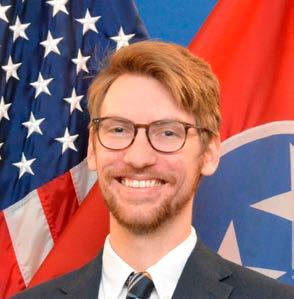
rigorous hearing, similar to those conducted for bail determinations, is paramount. The Bail Reform Act serves as a valuable precedent and requires courts to consider a range of factors, including criminal history, the severity of the alleged offense, an individual’s personal background, and any potential danger to the community. This comprehensive approach ensures a nuanced and equitable assessment of individual risk more in line with the Constitution’s requirement.
With the guidance of Williams, the Constitution, and the Bail Reform Act, courts will likely begin determining an individual’s dangerousness on an asapplied basis by evaluating factors such as dangerousness to the community, dangerousness of the arrest, and an individual’s personal background. Williams’ foresight could save someone like Lilly from going through an arduous cycle of prosecution and could save thousands of individuals from punishment, grant them their constitutional rights, and preserve valuable resources for all parties involved.
Brian Daniel Mounce currently works as Of Counsel at Relentless Advocacy. He received his J.D. from Tulane University and MSc from the London School of Economics. Previously, he served as an Assistant Federal Defender and an Assistant Solicitor General in the Tennessee Attorney General’s Office. Brian is the House Delegate for West Tennessee for the Tennessee Bar Association’s Young Lawyers Division. When not immersed in legal matters, Brian can be found spending time with his family in West Tennessee, cheering on the Tulane Green Wave, or raving about his favorite Steinbeck novels.













BY TERRE FRATESI
On December 16, 2024, the Memphis legal community lost one of our giants. I also had the distinct privilege of calling her my mentor and friend.
In 1989, Donna Fields took a chance and hired a 24-year-old University of Memphis law school graduate who knew absolutely nothing about practicing law and precious little about living in the larger world. While I studied for the bar exam, I had to learn enough about preparing and filing motions and entering orders so that Donna would feel comfortable leaving a “baby lawyer” holding down the fort while she traveled. I do not recall her destination that summer, but it was either to an orangutan preserve in Borneo, Medjugorje; Yugoslavia; or scuba diving with dolphins. I will never forget one of the first things she told me: her idea of a successful law practice was to be able to take a month off a couple of times per year to travel the world. Donna’s infectious enthusiasm for living inspired me in 1989 and would continue to do so until the day she left this world in 2024.
The month of March is Women’s History Month, and it calls to mind something Donna shared with me in 1989. She did not want to be known as a good “female attorney;” she simply wanted to be known as a good attorney. I watched her and absorbed like a sponge the lessons she was so generous to share. First and foremost, she taught me how to treat people. She showed me the importance of treating the clerks, bailiffs, and staff in each court with the same level of respect I showed to the judges and attorneys. When I went to court with Donna, I felt like I was going to Las Vegas with Sinatra. Everyone greeted her, and everyone adored her. Her goodwill graced me as I became known as her assistant and then later her associate. She taught me how to talk to clients with not only honesty, candor, and empathy but always integrity and professionalism. She taught me how to write letters, how to prepare petitions, and how to conduct myself with judges and other attorneys. She modeled professionalism, and she also infused it with joy and verve. She loved practicing law, and she loved being in trial. Lunch during trials would often be chocolate milk and candy bars from Harold’s snack stand in the courthouse. Sunday evenings at 1440 Poplar while preparing for trial would often be pizza or wings or both.

Once I came back from court fuming because an attorney had called me “little lady” and said that “I was cute when I was mad.” I was determined to complain about his comment to the Board of Professional Responsibility. When I told her who it was, she said she understood how I felt, but for someone of his generation, he likely intended it as a term of endearment. She told me to write the letter, sleep on it, and decide the next day whether to send it, as it was never a good idea to mail a letter when angry. I never mailed the letter, and by the end of that year the attorney was my buddy and would be for years to come.
Another time, I came back from court upset about something, and we sat down to discuss it. She said, “we don’t make the facts, Terre, we just try them.” She explained that clients and cases would come and go, but I would be practicing law with the same lawyers and judges in Shelby County for many years to come, and I should focus on building my reputation with them rather than getting caught up in a client’s drama that did not belong to me and that was not of my making. I never forgot that advice.
As Donna’s trial practice grew, she asked me to take on more of her juvenile court practice. I fell in love with juvenile court and would end up spending much of my career there, something that may never have happened were it not for my relationship with Donna Fields. Years later, after her portrait unveiling, she told me how proud she was of me and my career. It meant the world to me, and she meant the world to me. I am profoundly grateful that the formative years of my legal career happened under the watchful, caring embrace of Donna Fields. Whenever I have had an opportunity over the years to share a life lesson with a young attorney, I like to tell them “Donna Fields taught me that.” She taught me that, and so much more. Rest in peace, dear friend.

Terre Fratesi is a graduate of the University of Memphis, Cecil C. Humphreys School of Law. She served as an Assistant District Attorney for 22 years, spending most of those years as the lead juvenile prosecutor and on the Special Victims Unit. She retired from being a Juvenile Court Magistrate Judge after almost 10 years on the bench. She now enjoys doing mediation.
BY JUDGE STEVE HORNSBY
If there’s one thing lawyers deal with constantly, it’s uncertainty. We draft documents to contain it, negotiate settlements to resolve it, and counsel clients (and ourselves) through it. How many times have you silently thought, “I don’t care what happens; I just want this to be over”?
Beyond our work, we’re also living in profoundly uncertain times. Institutions that once felt solid are being challenged, and even the rule of law seems in flux. Uncertainty is the water we swim in, and it can feel like its own kind of hell.
Uncertainty hits the brain with a triple whammy:
• The amygdala (survival system) detects uncertainty as a threat and floods the body with stress hormones.
• The prefrontal cortex (planning center) struggles to form a clear path forward, leading to mental exhaustion.
• The nucleus accumbens (motivation and reward functions) stops releasing dopamine, killing motivation and joy.
The result? Agitation, overthinking, frustration, brain fog, and emotional exhaustion. In short, a case of the blues.
The good news? We already have the tools to regain balance.
1. Pause and Acknowledge – Take a deep breath. Notice what’s happening in your mind: “I’m replaying this over and over, but there’s no immediate solution. I’m exhausting myself.” Just recognizing this can feel empowering.
2. Assess What You Can Control – Ask yourself, “Is there anything left for me to do?” If yes, do it. If no, accept that it’s out of your hands. Letting go of control is tough, but much of life is beyond our control anyway—we just create illusions of certainty to feel safe.
3. Move Your Body – Stress hormones like cortisol and adrenaline need an outlet. Walk, exercise, dance, sports—whatever gets your body moving. Research shows that a moderate level of intensity
stimulates lots of feel-good hormones, but it doesn’t have to be intense, just enough to release tension and reset your brain’s chemistry.
4. Get Outside – Research shows that nature has a profound calming effect on the nervous system. Sunlight, trees, fresh air—simple but powerful medicine.
5. Engage in Creativity – Creative activities (writing, painting, cooking, music, etc.) shift the brain’s focus and activate pleasure pathways, helping lift mood and ease tension.
6. Socialize – Humans are social creatures. Spend time with people who uplift you, and if you need to vent, do it—but then shift the conversation to something positive.
7. Mindful practices – using the breath to slow down and spending 5-15 minutes daily in mindful awareness can open up an observer perspective that gives distance and balance. Ultimately, uncertainty is part of life. We can’t eliminate it, but we can change how we respond to it. By taking intentional steps, we can regain our sense of balance—and maybe even find peace in the unknown.
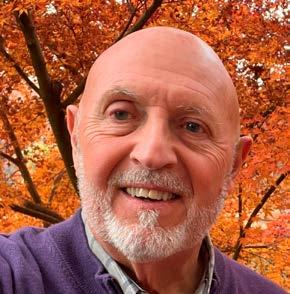
Judge Steven C. Hornsby (Ret.), JD, CLC, has served for 40+ years as a trial lawyer, judge, senior state government official, health care executive, consultant, and coach. His focus throughout these careers has been to help people and improve systems. Steve now works with professionals and senior leadership teams as a trusted ally, helping them live into their highest potential with confidence, wisdom, and joy. He also works with business partner Cindy Pensoneau in their joint venture, Summa Vita, helping busy professionals and organizations thrive.
He holds dual certifications in leadership and life coaching, is a certified HeartMath Coherence Advantage trainer, a trained Circle Process facilitator, and a graduate of The Silva Method. His undergraduate and law degrees are from the University of Memphis, and he is a graduate of the Tennessee Judicial Academy.
Contact: steve@judgehornsby.com and https://summavita.com/

BY BRYCE ASHBY
Twenty-five years ago, in December 2000, I rode in the passenger seat of a pickup truck along what would become a familiar route up a 3-mile dusty road, through rolling hills covered in pine trees, to San Francisco de Soroguara, Honduras. I was 22 years old, had finished 3 months of language and technical training, and was beginning my two years of Peace Corps service in this town of around 800 people.
My initial introduction to the community was inauspicious. I knew little of the town or its people, and my understanding of my work and what was needed in the community had come third-hand. On my first visit, I was asked to make a presentation to explain why I was there and what my work was. I prepared for most of the day and then went to the town hall to make my speech to the community. Through spotty Spanish, I explained how I was a natural resources volunteer, how I hoped to work in the schools and with the youth of the community, and how I was partnering with a local non-governmental organization to work with the community and in the nearby wildlife preserve in the Corralitos mountains and the cloud forests on their peaks. I concluded my remarks by noting how excited I was to be there.
I thought I had done a decent job. I looked up from my index cards, and stares and silence met my gaze. Silence reigned until a skinny older gentleman by the door stood up and said (in Spanish that I somehow clearly understood), “I didn’t understand a word he said.” He then walked out the door.
It was a humbling start. But it would not be my only failure.
Probably half of every project, meeting, and interaction that I had in my first year of service was a failure. It wasn’t until I stopped talking and took the time to listen and observe that I truly understood the community. And it

soil for agriculture. San Francisco de Soroguara also sits at the base of the Corralitos Mountains Wildlife Preserve, a cloud forest that produces streams of fresh potable water. Its place in the hills also protected it from Hurricane Mitch’s devastation in 1998 and subsequent hurricanes that have come with increasing strength and frequency in the last two decades.
wasn’t until I gained this understanding that I actually had something worth saying and listening to.
Talking first without first understanding larges summarizes what passes for the immigration “debate” today in the United States. This discussion is focused almost uniformly from an American perspective. On the right, the talking points depict criminal hordes storming our borders, while the left approaches the topic wondering whether our policies are living up to American values. We don’t ask how we got here today. We never reflect on the role the United States played in creating this crisis. And we rarely ask who makes these journeys or why they undertook such journeys.
In Immigration, Policy and the People of Latin America: Seven Sending Nations, Prof. Mike LaRosa and I tried to put the immigration debate in the context of the current and historical relationships between the United States and Mexico, Colombia, Cuba, Guatemala, Haiti, Honduras, and Venezuela, while weaving in the stories of actual immigrants who journeyed to the United States.
Conversations I have been having with my friends from San Francisco de Soroguara added part of the impetus for the book. 25 years ago, I was one of the few Americans that most of the people in the town had met. Few in my community had family in the United States. A quarter century later, it felt as if half of the young kids I worked with in Honduras lived in the United States. Why would a town like San Francisco de Soroguara undergo such a dramatic shift?
On paper, San Francisco de Soroguara would seem to be immune from most of the pressures that push outward migration. From a geographic perspective, San Franciso de Soroguara sits among rolling hills of pine and oak forests. It has plenty of land for cattle and relatively good

Economically, San Francisco de Soroguara is fortunate to be only a 45-60 minute bus ride to the capital, Tegucigalpa, in one direction and a similar bus ride to Comayagua, a department capital and home to an American army base, in the other direction. The journey to the capital passes through the Amarateca Valley, which is home to various maquilas for auto parts manufacturers. The pine forests were also a source of economic relief. The community cooperative harvests the sap of the trees to make turpentine and shares the proceeds of those sales among its members. Educationally, San Francisco de Soroguara has an elementary school and is a 3-mile walk (ride if you’re lucky) to a middle school. Many of its residents have family members in Tegucigalpa, which has dozens of public and private high schools as well as the National Autonomous University of Honduras (UNAH).
San Francisco de Soroguara, like many rural areas of Honduras, has been relatively untouched by the epidemic of gang violence that has spread across the cities of Central America. Indeed, a number of wealthier individuals living in Tegucigalpa have second homes in San Francisco de Soroguara to seek respite from the ceaseless noise and pollution of the city. It is an idyllic town with many of the resources that should have sustained its population and prevented large-scale emigration.
Despite these advantages, San Francisco de Soroguara has seen a huge number of its young citizens depart and start lives in the United States. One such young man, Manuel, reports that nearly every family has at least one member living in the United States sending money (called remittances) home. The question is why?
Manuel never wanted to leave San Francisco de Soroguara. He obtained a bachillerato, sort of a specialized high school diploma, in business but could never obtain work in his field of study. Instead, he tried
working in the maquila zone and then in a toll booth. Neither position provided economic security nor the type of mental challenge that he craved.
The town also began to change. The pine cooperative collapsed as the country suffered a massive die-off of pine trees due to an infestation of the pine bark beetle. Most scientists believe the pine bark beetle spread unchecked due to warming temperatures and longer periods of drought caused by climate change. San Francisco de Soroguara is not an island. The repeated blows of stronger and stronger hurricanes took a massive toll on the country’s economy, which harmed San Francisco de Soroguara even when the winds, rain, and flooding did not.
Similarly, even though gang violence has largely not hit San Francisco de Soroguara directly, the economic effects it has had on Honduras have likewise not left the town untouched. This plague of gang violence has been building for the past 35 years. The roots of violent crime in Honduras, like most of Central America, were birthed in Los Angeles in the 1980s, where Central Americans, especially Salvadorans, landed after fleeing a brutal civil war sponsored by the U.S. government. These Central Americans resided in the poorest parts of Los Angeles and found themselves the targets of largely Mexican street gangs. They formed their own gangs like Mara Salvatrucha (MS-13) and the 18th Street Gang (Barrio 18).
After the Rodney King riots in 1992, an immigration crackdown followed and deported these disaffected youth back to Central America. Essentially, the United States sowed the seeds of organized violent crime and

then transplanted it back to Honduras and the rest of Central America.
The source of violent crime is a perfect example of the complexity of the immigration debate. It is both a domestic and foreign policy issue. To find a solution, we need to talk less and listen, observe, and understand more.
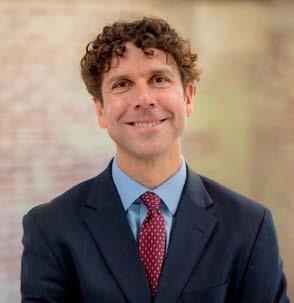
Unfortunately, our current leaders seem less interested in a solution than in scoring political points. In light of that disinterest, our only hope is for the rest of us citizens to gain a deeper understanding about the root causes of migration and make electoral decisions based on that knowledge.
Bryce W. Ashby is an attorney with Donati Law, PLLC where he represents workers in their employment law claims. He is a graduate of the University of Memphis Cecil C. Humphreys School of Law and Rhodes College and was a Peace Corps Volunteer in Honduras from 2000 to 2002. He and Michael J. LaRosa, associate professor of history at Rhodes College, have coauthored numerous op-eds about immigration and recently published Immigration, Policy and the People of Latin America: Seven Sending Nations (Routledge 2024).

Thursday, April 24, 2025
Calvary Episcopal Church 102 N. Second Street
James T. Allison
Hon. Joyce C. Broffitt
Mike Cody
Darnell "Don" Dowden
Hon. Donna Fields
Monroe Waldemar Gibbs, Sr.
Will Griffin, Sr.
Jack Lewis Halliburton
Ronald Maury Harkavy
Matthew Heiter

John D. Horne
Michael Johnson
Hon. Ronald Spearman Johnson
James "Jim" Albert Lawrence
Mike Mitchell
Lytle Nichol
Johnny Rasberry
Lorenzo Derek Renfroe
Julia "Judy" Stokes Sayle
Memorialize an attorney or judge by making a tax-deductible gift in their honor to the Memphis Bar Foundation.
Click here to make a donation and have an acknowledgement sent to the family.









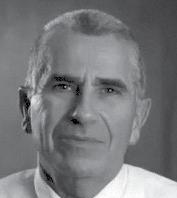


BY VANESSA BULLOCK
As a proud resident of Memphis and the recently appointed Director of Special Projects and Memphis Office Manager for West Tennessee Legal Services (WTLS), I am thrilled to announce WTLS’ expansion into the 901. This expansion marks an exciting and historic milestone for WTLS, as we now offer no-cost civil legal services to families and individuals across 21 counties—including Shelby, Tipton, Fayette, and Lauderdale.
In 2024, the Legal Services Corporation (LSC) asked WTLS to begin providing legal services in the Memphis area. LSC, a nonprofit organization created by Congress to provide financial support for civil legal aid programs, plays a crucial role in promoting equal access to justice for all Americans regardless of their financial situation. With this funding, we provide essential assistance to low-income clients facing challenges related to housing, domestic violence, public benefits, consumer issues, and more.
For over four decades, WTLS has been a cornerstone of legal aid in West Tennessee. Since our founding in 1979, we’ve dedicated ourselves to helping vulnerable individuals, focusing on issues that impact individual and family safety and stability. Last year alone, our lawyers and paralegals helped more than 9,000 people with more than 4,000 cases, resulting in more than $3.9 million awarded to our clients.
Our newly opened office in Memphis marks our fifth public-facing office location in West Tennessee (along with our offices in Jackson, Dyersburg, Huntingdon,


and Selmer). And we’re already working hard for the residents of Shelby County through expungement clinics, simple wills and powers of attorney clinics, fair housing workshops, and individual cases.
In 2024, WTLS assisted a disabled client at risk of losing his lifelong home after the death of his mother, who was the lienholder. WTLS worked directly with the lender and accomplished the client’s goal by having him recognized as a successor in interest, which allowed him to remain in his home. This example is just one of many stories of how we’re working to empower Memphis residents and bring them access to justice.
We know that we can’t do this alone. That's why we’re actively seeking to partner with Memphis lawyers who share our passion for equal access to justice. Through our Pro Bono program, local attorneys can make a significant impact by providing legal services to those in need. We are grateful for the many Memphis law firms and attorneys who are already working with us to make a difference in our community.
I’m honored to lead this new chapter for WTLS, and I’m deeply grateful to the Memphis community for welcoming us. We’re here to support you, and I invite you to contact me if you have questions, need assistance, or want to learn more about how you can get involved. Thank you for being a part of this exciting journey. Together, we can ensure that justice is accessible to everyone in West Tennessee.
Vanessa Bullock worked as the Fair Housing Director and Managing Attorney at WTLS before becoming Director of Special Projects. She received her Bachelor of Business Administration degree from the University of Mississippi and Juris Doctorate from the University of Mississippi School of Law and is licensed to practice law in Mississippi and Tennessee. She has lectured on fair housing rights across Tennessee and represented complainants in housing discrimination cases, including those involving public housing and disability discrimination. Vanessa lives in Memphis with her husband and children.
covers jury trials from June 1, 2024 through December 31, 2024
CRIMINAL COURT DIVISION I
JUDGE PAULA SKAHAN
State of Tennessee v. John Moore, No. BB8285
Trial from June 17-20, 2024
Assistant District Attorney Generals: Missy Branham and Sanjeev Memula
Defense: Joe McClusky
Charges on Indictment: First Degree Murder, Tampering with Evidence x2
• Verdict: Voluntary Manslaughter and Tampering with Evidence x2
• Sentencing: 5 years supervised probation for Voluntary Manslaughter concurrent with 6 years probation for Tampering with Evidence x2
State of Tennessee v. Joseph Lumley, No. BB6327
Trial from July 15-18, 2024
Assistant District Attorney Generals: Dru Carpenter and Tanisha Johnson Defense: Blake Ballin
Charges on Indictment: Rape of a Child, Aggravated Sexual Battery
• Verdict: Guilty – Aggravated Sexual Battery, Assault
• Sentencing: 10 years at the Tennessee Department of Corrections and 6 months on the assault
State of Tennessee v. Dante Lyons, No. BB7135
Trial from July 29-31, 2024
Assistant District Attorney Generals: Gavin Smith and Venecia Patterson
Defense: Blake Ballin
Charges on Indictment: Aggravated Sexual Exploitation of a Minor, Sexual Exploitation of a Minor
• Verdict: Guilty as charged
• Sentencing: 6 years for Aggravated Sexual Exploitation of a Minor at the Shelby County Department of Corrections concurrent with 2 years for Sexual Exploitation of a Minor at the Shelby County Department of Corrections
State of Tennessee v. David Pruett, No. BA6570a
Trial from August 5-7, 2024
Assistant District Attorney Generals: Dru Carpenter and Rob Steele
Defense: Amy Mayne
Charges on Indictment: Rape of a Child, Especially Aggravated Sexual Exploitation of a Minor, Especially Aggravated Sexual Exploitation of a Minor, Sexual Exploitation of a Minor
• Verdict: Guilty on Rape of a Child, Especially Aggravated Sexual Exploitation of a Minor, and Sexual Exploitation of a Minor x2
• Sentencing: 04/02/2025
CRIMINAL COURT DIVISION II
JUDGE JENNIFER FITZGERALD
State of Tennessee v. Raymond Benson, No. BB9180
Trial from June 24-28, 2024
Assistant District Attorney Generals: Lauren Hutton and Kevin McAlpin
Defense: Constance Barnes
Charges on Indictment: Second Degree Murder, Convicted Felon in Possession of a Handgun, and Theft of Property
$2,500-$1,000
• Verdict: Reckless Homicide and Convicted Felon in Possession of a Handgun
• Sentencing: 4 years on Reckless Homicide and 2 years on Convicted Felon in Possession of a Handgun, probation
State of Tennessee v. Keylone Jones, No. BA5348
Trial from July 8-12, 2024
Assistant District Attorney Generals: Kevin McAlpin and Leslie Fouche
Defense: Terrell Tooten
Charges on Indictment: First Degree Murder
• Verdict: Second Degree Murder
• Sentencing: 20 years at the Tennessee Department of Corrections

JUDGE JAMES JONES JR.
State of Tennessee v. Gerry Stitts, No. BC0828
Trial from June 24-27, 2024
Assistant District Attorney Generals: Venecia Patterson and Nicole Germain
Defense: Charles Brent Walker
Charges on Indictment: Rape of a child, Aggravated Sexual Battery
• Verdict: Guilty as charged
• Sentencing: 04/02/2025 motion for new trial
State of Tennessee v. Travis Rogers, No. BB5625
Trial from July 29-August 1, 2024
Assistant District Attorney Generals: Devon Dennis and Shannon Toon
Defense: Rob Felkner
Charges on Indictment: First Degree Murder
• Verdict: Guilty as charged
• Sentencing: Life with Parole
State of Tennessee v. Terrell Jones, No. BB4349
Trial from August 19-23, 2024
Assistant District Attorney Generals: Chris Lareau and Rachel Moore
Defense: Glover Wright and Jack Pullis
Charges on Indictment: First Degree Murder x4, Criminal Attempt: First Degree Murder, Employing Firearm during a Dangerous Felony, Aggravated Robbery
• Verdict: Not guilty on all counts
State of Tennessee v. Jose Ruelas, No. BD0318
Trial from August 26-28, 2024 - August 28, 2024
Assistant District Attorney Generals: Alexia Crump and Gavin Smith
Defense: Nick Cloud and John Cliff
Charges on Indictment: Rape of a Child, Aggravated Sexual Battery, Especially Aggravated Sexual Exploitation of a Minor, Incest
• Verdict: Guilty as charged: Rape of a Child, Aggravated Sexual Battery, and Incest; Directed out incorrectly: Especially Aggravated Sexual Exploitation of a Minor
• Sentencing: 04/11/2025
State of Tennessee v. Jesus Castanon, No. BB2997
Trial from December 9-11, 2024
Assistant District Attorney Generals: Tanisha Johnson and William Wetter
Defense: Lou Chiozza
Charges on Indictment: Rape of a Child
• Verdict: Guilty as charged
• Sentencing: 04/10/2025
CRIMINAL COURT DIVISION IV
JUDGE CAROLYN WADE BLACKETT
State of Tennessee v. Jayden Dorsey, No. BC2495
Trial from July 15-19, 2024
Assistant District Attorney Generals: Carrie Bush and Steve Crossnoe
Defense: Terrell Tooten
Charges on Indictment: First Degree Murder and Tampering with Evidence
• Verdict: Voluntary Manslaughter and Tampering with Evidence
• Sentencing: 8 years at the Tennessee Department of Corrections
CRIMINAL COURT DIVISION V
JUDGE CARLYN ADDISON
State of Tennessee v. Romeaka Evans, No. BD0345
Trial from July 29-August 2, 2024
Assistant District Attorney Generals: Katie Ratton and Monica Timmerman
Defense: John Dolan
Charges on Indictment: Second Degree Murder
• Verdict: Guilty as charged
• Sentencing: 25 years at the Tennessee Department of Corrections
State of Tennessee v. Joshua Dotson, No. BB1539
Trial from August 19-22, 2024
Assistant District Attorneys: Regina Lucreziano and Lessie Rainey Defense: Juni Ganguli
Charges on Indictment: First Degree Murder
• Verdict: Guilty as charged
• Sentencing: 102 years at the Tennessee Department of Corrections
State of Tennessee v. Michael Lurry, No. BC8046
Trial from August 26-29, 2024
Assistant District Attorney Generals: Monica Timmerman and Alicia Walton Defense: Mitch Wood
Charges on Indictment: First Degree Murder, Theft of Property $60,000-$250,000, Criminal Attempt – Carjacking, Criminal Attempt – Theft of Property $2,500-$10,000
• Verdict: Guilty on all counts except the Criminal Attempt –Carjacking was dismissed by the State of Tennessee
• Sentencing: Life with parole for First Degree Murder consecutive to 10 years at the Tennessee Department of Corrections for the Theft of Property $60,000-$250,000 and 2 years at the Tennessee Department of Corrections for the Criminal Attempt – Theft of Property $2,500-$10,000
State of Tennessee v. Travis Cohens, No. BC6499
Trial from October 21-24, 2024
Assistant District Attorney Generals: Regina Lucreziano and Venecia Patterson
Defense: Claiborne Ferguson
Charges on Indictment: First Degree Murder, Criminal Attempt: First Degree Murder x2, Employing a Firearm
During a Dangerous Felony, Convicted Felon in Possession of a Handgun
• Verdict: Guilty as charged
• Sentencing: 04/11/2025 motion for new trial
State of Tennessee v. Jose Salgado, No. BC7459a
Trial from November 12-15, 2024
Assistant District Attorney Generals: Alyssa Hennig v. Monica Timmerman
Defense: Joe McClusky
Charges on Indictment: First Degree Murder x4, Especially Aggravated Burglary
• Verdict: Guilty as charged
• Sentencing: Two consecutive life sentences consecutive to 12 year sentence for Especially Aggravated Burglary consecutive to his DUI cases in Criminal Court VI
State of Tennessee v. Catonya Nelson, No. BD3350
Trial from December 2-5, 2024
Assistant District Attorney Generals: Lessie Rainey and Regina Lucreziano
Defense: John Dolan
Charges on Indictment: Second Degree Murder
• Verdict: Guilty as charged
• Sentencing: 25 years at the Tennessee Department of Corrections
CRIMINAL COURT DIVISION VI
JUDGE DAVID POOL
State of Tennessee v. Kelvin Nelson, No. BB2926
Trial from: July 8-10, 2024
Assistant District Attorney Generals: Eric Christensen and Gavin Smith
Defense: Juni Ganguli
Charges on Indictment: First Degree Murder x2, Criminal Attempt: First Degree Murder x2, and Aggravated Burglary
• Verdict: Pled to Second Degree Murder and Criminal Attempt First Degree Murder x2 during State’s proof
• Sentencing: 25 years at the Tennessee Department of Corrections
CRIMINAL COURT DIVISION VII
HONORABLE LEE COFFEE
State of Tennessee v. Tyshun Tabor, No. BC1021 Trial from August 26-30, 2024
Assistant District Attorney Generals: JD Hamblen v. Lessie Rainey
Defense: John Dolan
Charges on Indictment: Aggravated Rape of a Child
• Verdict: Guilty as charged
• Sentencing: 03/05/2025 Motion for New Trial
State of Tennessee v. Terrell Key, No. BC9791 Trial from October 28-November 2, 2024
Assistant District Attorney General: Leslie Byrd Defense: Coleman Garrett
Charges on Indictment: Criminal Attempt: First Degree Murder, Carjacking, Employing a Firearm During a Dangerous Felony
• Verdict: Guilty as charged
• Sentencing: 04/11/2025
CRIMINAL COURT DIVISION VIII
JUDGE CHRISTOPHER CRAFT
State of Tennessee v. Joseph Davis, No. BC5384A Trial from August 19-22, 2024
Assistant District Attorney Generals: Venecia Patterson and Nicole Germain
Defense: Rob Felkner and Andy Reid
Charges on Indictment: Count 1 - Rape of a Child, County 2 - Aggravated Sexual Battery, Count 3 - Especially Aggravated Sexual Exploitation of a Minor, Count 4 - Especially Aggravated Sexual Exploitation of a Minor, Count 5Especially Aggravated Sexual Exploitation of a Minor, Count 6 - Aggravated Sexual Battery, Count 7 - Criminal Attempt Aggravated Sexual Battery
• Verdict: Guilty on all counts except count 4
• Sentencing: 05/02/2025
State of Tennessee v. Quante Webb, No. BC8658
Trial from September 9-13, 2024
Assistant District Attorney Generals: Alexia Crump and Gavin Smith
Defense: Paul Guibao
Charges on Indictment: First Degree Murder, Criminal Attempt: First Degree Murder, Employing a Firearm during a Dangerous Felony, Aggravated Child Abuse
• Verdict: Guilty as charged
• Sentencing: Life with Parole for First Degree Murder, 32 years for Criminal Attempt: First Degree Murder, 8 years for Employing a Firearm during a Dangerous Felony, 32 years for Aggravated Child Abuse (all concurrent) CRIMINAL


State of Tennessee v. Kevin Smith, No. BD1148
Trial from October 28-30, 2024
Assistant District Attorney Generals: Scott Bearup and Brandon Wright
Defense: William Johnson
Charges on Indictment: Vandalism over $60,000
• Verdict: Guilty as charged
• Sentencing: 30 years at the State Penitentiary
State of Tennessee v. Richard Erby, No. BC9267
Trial from November 18-21, 2024
Assistant District Attorney Generals: Steve Ragland and Rob Steele
Defense: Pro Se Defendant (John Dolan as elbow counsel)
Charges on Indictment: Aggravated Rape of a Child, Aggravated Sexual Battery
• Verdict: Not guilty on all counts
State of Tennessee v. Nickalous Ladd, No. BA9576
Trial from: December 9-10, 2024
Assistant District Attorney Generals: Scott Bearup and Jack Gould
Defense: Billy Gilchrist
Charges on Indictment: Convicted Felon in Possession of a Firearm
• Verdict: Guilty as charged
• Sentencing: 04/23/2025
CRIMINAL COURT DIVISION X JUDGE JENNIFER MITCHELL
State v. Maurice Harris, No. BA7398
Trial from June 24-27, 2024
Assistant District Attorney Generals: Tanisha Johnson and Nicole Germain Defense: Leslie Ballin
Charges in indictment: Rape of a child
• Verdict: Guilty as charged
• Sentencing: 25 years at the Tennessee Department of Corrections
State of Tennessee v. John Champion, No. BB1495
Trial from September 3-6, 2024
Assistant District Attorney Generals: Venecia Patterson and Robert Steele
Defense: Andre Wharton
Charges on Indictment: Sexual Battery by Authority Figure
• Verdict: Guilty as charged
• Sentencing: 02/21/2025
State of Tennessee v. Jemorris Brown, No. AZ8870
Trial from September 30-October 2, 2024
Assistant District Attorney Generals: Tanisha Johnson and William Wetter
Defense: Michael Johnson
Charges on Indictment: Rape x2
• Verdict: Not Guilty on all counts
State of Tennessee v. Justin Johnson, No. BC2452b
Trial from September 23-26, 2024
Assistant District Attorney Generals: Paul Hagerman and Irris Williams
Defense: Luke Evans
Charges on Indictment: Conspiracy to Commit First Degree Murder, First Degree Murder, Unlawful Carrying or Possession of a Weapon
• Verdict: Guilty as charged
• Sentencing: 35 years at the Tennessee Department of Corrections for Conspiracy to Commit First Degree Murder concurrent with 15 years at the Tennessee Department of Corrections for Unlawful Carrying or Possession of a Weapon consecutive to Life with Parole for First Degree Murder
State of Tennessee v. Calvin Watson, No. BB3185
Trial from November 18-21, 2024
Assistant District Attorney Generals: Russell Born and Carla Taylor
Defense: Tim Williams
Charges on Indictment: First Degree Murder
• Verdict: Guilty as charged
• Sentencing: 04/10/2025 motion for new trial
The following case was inadvertently omitted from the State Court Civil Trial Report in Volume 41, Issue 4:
Sherronda Coleman v. Shelby County, Tennessee, No. CT-1111-19
Bench Trial on December 12, 2024
Attorneys for Plaintiff: David Gold
Attorneys for Defendant: Bruce Brooke and Joshua Warren
Claims in Complaint: Negligence related to a slip and fall at the correctional facility premises formerly known as the Shelby County Penal Farm.
• Verdict: The court found for Plaintiff and awarded $142,359.86 in damages.















BY NICOLE M. GRIDA, CHIEF EXECUTIVE OFFICER*
TitleVIII of the Civil Rights Act of 1968, commonly known as the Fair Housing Act, 42 U.S.C. 3601 et seq. (“FHA”), prohibits discrimination by housing providers, including landlords and real estate companies, lending institutions, and homeowners’ insurance companies. Originally, the FHA prohibited discrimination based on race, religion, national origin, or sex. Amendments to the FHA expanded these protections to include sex (1974), disability and familial status (1988), and sexual orientation and gender identity (2021).
President Lyndon B. Johnson signed the FHA into law on April 11, 1968, just one week after the assassination of Dr. Martin Luther King, Jr. here in Memphis. To commemorate the passage of the Fair Housing Act, fair housing advocates, organizations, and local communities across the country celebrate National Fair Housing Month each April by hosting a variety of activities and events to increase public awareness of fair housing work and highlight the importance of creating equitable and inclusive communities. In 2022, then HUD Secretary Marcia Fudge reaffirmed the importance of Fair Housing Month:
The Fair Housing Act recognized what generations have known – that where we live impacts nearly every part of our lives. Fair Housing Month is a time to recommit to our mission to promote fairness, inclusion, and justice in housing. This month and every month, we are doing everything in our power to ensure every person has a fair shot at the American dream.
Since its inception in the wake Dr. King’s death, Memphis Area Legal Services, Inc. (“MALS”) has remained committed to fair housing work. Through the
Memphis Fair Housing Center (“MFHC”), a division of MALS, our attorneys represent clients with fair housing issues to ensure they are not being discriminated against in violation of the FHA. With funding from the City of Memphis, the MFHC investigates complaints of fair housing violations.
With funding from the Shelby County Commission and the tireless support of Shelby County General Sessions Judge Deborah Henderson and Shelby County Commissioner Erika Sugarmon, MALS established the Housing Stability Solutions PILOT Program last year. This PILOT Program is an alternative to the voluminous housing eviction cases heard in Shelby County General Sessions Court. When MALS learns of a tenant living in substandard housing, our advocates contact our housing expert, a retired code inspector, who can visit the rental property and determine if there are any issues with the housing conditions. If he finds code violations or other issues affecting the property’s habitability, he prepares a report. Our attorneys then contact the landlord to demand the necessary repairs are made. With this funding, MALS and its partners strive to break the cycle of landlords renting residential properties with substandard housing conditions to underrepresented and marginalized groups

including minorities, women, and elderly Shelby County residents.
In addition to direct civil representation, MALS advocates often participate in outreach events to ensure community members know their fair-housing rights. This year, MALS has had the opportunity to partner with The Works, West Tennessee Legal Services, Inc. (“WTLS”), and the Community Legal Center to host a series of workshops in each of the Shelby County Commission Districts. Through this partnership, housing advocates from non-profit organizations present on renter’s rights on a monthly basis. After the presentation, community

members can meet with an attorney from MALS or WTLS to discuss any specific housing issues they may have.
To learn more about fair housing advocacy and the importance of this work, I invite you to join me at the 2025 Fair Housing Summit on Tuesday, April 29, 2025.
Hosted by the Tennessee Humans Rights Commission, this year’s theme is Fair Housing in 2025: Progress, Challenges, and the Future, and the Summit will focus on the most pressing fair housing issues in Tennessee. For more information or to register, please click here.
The MALS Board of Directors appointed Nicole M. Grida as its Chief Executive Officer effective June 1, 2024. A longtime supporter of access to justice, Ms. Grida brings her leadership, collaboration, and legal skills to ensure MALS continues to provide excellence in legal advocacy for those in need while finding innovative ways to protect the legal rights of low-income citizens in Shelby, Fayette, Tipton, and Lauderdale counties.
Since becoming a member of the Memphis legal community in 2006, Ms. Grida has represented clients in toxic tort, product liability, premises liability, personal injury, property damage, and general civil litigation matters in state and federal courts throughout the country. As an in-house litigation attorney for International Paper (IP), Ms. Grida served on the Steering Committee for IP’s Signature Pro Bono Initiative focused on providing equal justice to Tennessee residents through expungements, voting rights restorations, and driver’s license reinstatements. As a bar association leader and non-profit board member at the local, state, and national levels, she served as board chair for multiple organizations; chaired committees tasked with vetting judicial candidates, revising by-laws, and creating pathways to leadership for diverse members; and worked directly with staff members to create, refine, and achieve their organizations’ missions, visions, and strategic plans.






The Shelby County Board of Commissioners has appointed Taylor Bachelor as the new General Sessions Criminal Court Judge for Division 7. Judge Bachelor has replaced Judge Bill Anderson, who retired on March 1, 2025. Judge Bachelor will serve until a special election is held along with the August 2026 general election. Before her appointment, Judge Bachelor served as a Shelby County Assistant District Attorney and a juvenile court magistrate.
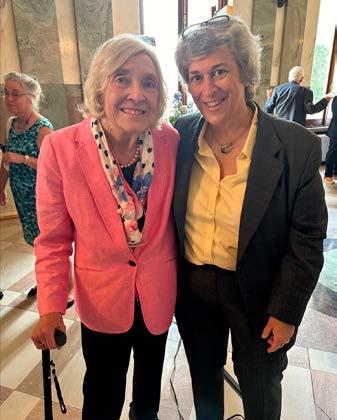
Judge Julia Smith Gibbons of the U.S. Court of Appeals for the Sixth Circuit has been named a 2025 Women of Achievement honoree by the Memphis Area Women’s Council. The 39th Women of Achievement awards took place on March 30, 2025 at First Congregational Church. In 1981, Judge Gibbons became the first female judge for a Tennessee trial court of record when she was appointed to the Tennessee Circuit Court for Shelby County.






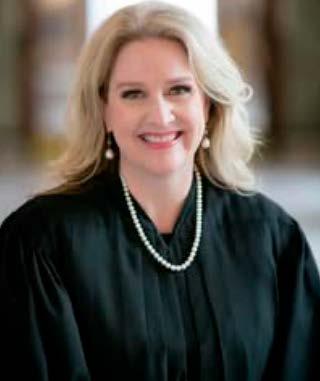
On March 24, 2025,

Attorney Rebekka Freeman Terrell has been named as a recipient of the Class of 2025 Volunteer 40 Under 40 Award for the University of Tennessee. The awards program selects "exceptionally accomplished alumni professionals" from a variety of fields who have demonstrated service and leadership. Terrell is the Chief Administrative Officer of the Shelby County Criminal Court Clerk’s Office and is on the board of directors for the Memphis Child Advocacy Center and the Association for Women Attorneys – Memphis chapter. She is a UT Promise scholarship mentor and an active member of the Memphis Junior League and National Black Prosecutors’ Association and volunteers with Shelby County Youth Court. She was named to the 2024 class of Memphis Bar Foundation Fellows and to the 2025 class of Tennessee Bar Association Leadership Law.
If you are an MBA member in good standing and you’ve moved, been promoted, hired an associate, taken on a partner, or received an award, we’d like to hear from you. We will not print notices of honors determined by other publications (e.g., Super Lawyers, Best Lawyers). Notices are limited to 100 words; they are printed at no cost to members and are subject to editing. E-mail your notice and hi-resolution photo (300 dpi) to kswan@memphisbar.org.
